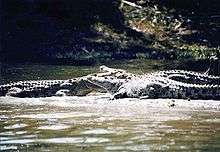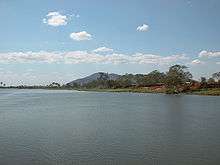Liwonde National Park
Understand

History
Landscape
Liwonde National Park is on the east bank of the Shire (pronounced "shi-ray") River, at the southern end of Lake Malombe. The park is long, thin and flat, with hills towards the southern tip.
Flora and fauna
To view animals, the best time to visit Liwonde is in the dry season when they come to the river to drink. Animals living in the park include: elephant, hippo, Burchell's zebra, black rhino (very rarely seen), warthog, greater kudu, vervet monkey, baboon, impala, water buck, bush buck, mongoose, crocodile and monitor lizard. Some lions have taken up residence in the park, but these are unlikely to be seen.
A wide variety of birds can be seen all year round. Among them, of course, is also the African Fish Eagle, Malawi's national bird.
The birds are one of the main attractions of the park, for those who are somewhat knowledgeable in the field.
The flora is dominated by mopane woodland, so named because the tswana word 'mopane' refers to the butterfly shape of the leaves. Other species include the spectacular baobab trees and the poetic fever trees.
Climate
Liwonde National Park is in one of the hottest, most humid areas of Malawi.
Get in
A boat runs regularly from Liwonde town to Mvuu Camp and Lodge.
To drive to Mvuu Camp and Lodge, turn off the M3 at the village of Ulongwe (about a third of the way between Liwonde and Mangotchi). From there it's a 14-km drive along dirt roads to the edge of the park, and another 1 km to the river where you can leave your vehicle and get a boat across the river to Mvuu Camp and Lodge.
Bicycle taxis can be arranged from Ulongwe, but they are not for the faint-hearted.
You can also drive in from the south (the turning is just outside Liwonde town, to the east). This is the entrance to use if you are staying at Bushmans Baobabs. From the south entrance it's about a 30-km drive inside the park to Mvuu Camp and Lodge, and only about 3 km to Bushmans Baobabs. Seek advice before attempting to reach Mvuu this way.
If you do not have a vehicle it is best to call ahead and have someone from Bushmans Baobabs pick you up from the park gate which can be reached by bicycle taxi. It's best to arrange this before reaching the park, since walking into the park is not allowed (for obvious reasons) and you could end up stranded at the gate, without a phone, without a bicycle taxi and several miles from anywhere.
Another option is to use the MV Mangunda a cruise boat that runs daily trips and overnight trips into the park. Based at Villa Liwonde in Liwonde town. This is a nuique way to view the park and its animals.
Fees and permits
The park fees to non-Malawian residents are about $5 US a day.
Get around
See
Do
The park offers some very nice safaris. You can either go by 4wd for some regular safari drive, or you have the option to take a canoe safari tour, which is pretty cool & very relaxing, plus you get to see the hippos just near you (not too close, because they can be dangerous). Yet another option, is to take a walking tour in the park, also a very nice way to explore this relatively small, but very beautiful, park.
All safari activities can, of course, be organized inside the park, no need to book in advance. The guides, and any other staff, are all very welcoming.
Buy
Eat
Bushman's Baobab serves excellent food; for travellers who crave something other than nsima, be prepared for a three-course feast to suit all tastes, and the price is very reasonable.
Liwonde Safari Camp has a menu for breakfast and lunch and a small tasty buffet in the evening.
Drink
The bar sells the usual soft drinks and Africa's favourite lager, Carlsberg, pineapple Fanta, and of course, the local Kuche Kuche beer. The guide will take purchased drinks in a water cooler on the boat safari so that you can have a cool drink while watching the sunset on the shire.
Sleep
Lodging
- Bushman's Baobabs (former Chinguni Hills).
- Liwonde Safari Camp.
- Mvuu Camp.
- Mvuu Lodge.
- Njobvu Cultural Lodge,Njobvu Cultural Village Njobvu Cultural Village is run by local villagers and is an important source of revenue for the community. Benefiting from Liwonde park tourism encourages communities to conserve their valuable natural and cultural resources. A percentage of the funds are used to support a nursery school. Visitors of the lodge experience the real Malawian life, by sleeping in the traditional mud brick hut in the village and meeting the villagers and their traditions.
Camping
Backcountry
Stay safe
If staying at Mvuu Camp or Mvuu Lodge, then be very careful if you need to leave your accommodation at night. Encounters with hippos are all too easy as they graze on the lawn in front of the chalets at night!
